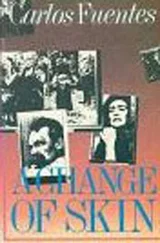The Left can safely say that globalization is neither a monster nor a value in and of itself. And there is no real need to ascribe any kind of value to globalization; what we do need is the assurance that it can be held accountable to responsible, publicly elected political powers. As Massimo D’Alema insists, what we need is a supranational political entity that can govern globalization. Properly governed, globalism is an opportunity for everyone. Without government, it will degenerate into anarchy and inequality for everyone. Today, globalism and irresponsibility fraternize far too much. The Left must insist upon the need for an international political code empowered to “regulate expansion and ensure that it is compatible with the values of democracy, individual and collective liberty, and the fair distribution of wealth.”
As the former Italian prime minister said, the future of the Left will be determined by its capacity to generate ideas and transform itself. The Left knows that the future cannot be planned for by sacrificing lasting values of equality (not “egalitarianism” or “leveling”) or liberty at whim, with values that free us from need. Capitalism proposes the reasons for the economy. But democracy proposes the values of political consensus. In order to achieve a compromise between these two elements, the Left represents the political forum in which the weakest members of society and the market may fight and negotiate their victories.
This challenge is clearly a difficult one. Another, more radical wing of the Italian Left argues that global capitalism has stopped trying to achieve consensus and exists in constant contradiction with its own democracy and its own human rights declarations. The rights of man do not exist. Rights of the market exist.
In the end, this radical critique does not exclude the goals of political primacy and the regulation of globalism proposed by the reformist Left. To think otherwise is to reward the status quo and even encourage disillusion in the face of the supposedly inevitable. As a counterpoint, Walter Veltroni and the democracy of the Left in Italy offer a series of guidelines to help distinguish Right from Left, just as Bobbio asks of us, and gives the Left a plan that promises more growth and more equality.
I cannot overlook, however, my friend Rossana Rosanda’s very commendable stance: it is better to have more doubts than reasonable certainties. That, perhaps, is also part of a New Left that throws off the terrible shackles of the dogmatisms that, time and again, have led to the Left’s fragmentation, lack of viable proposals and, in the end, failures. Painful as it is, the case of the Mexican Left illustrates this point particularly well.
In the wake of the democratic elections of July 2, 2000, which heralded the end of seventy-one-year, single-party rule by the Partido Revolucionario Institucional (Institutional Revolutionary Party), party life in Mexico revealed its anachronistic inadequacies. The PRI lived through its symbiosis with the President of the Republic. The PRI without a president is like an egg without salt: like a chicken with its head cut off running mad through a farmyard surrounded by nopales. The PRD (Partido de la Revolución Democrática, or Democratic Revolution Party) represented the leftist opposition to the PRI but, just like the PRI, has shown signs of internal debilitation. The PRD’s protests against the PRI have lost their meaning, for both are now opposition parties. But the PRD’s proposals are too similar to those of the old nationalist Left, hungry for a macro-state, the kind that was big in terms of size but small in terms of effectiveness. Less willing to capitalize on the advantages of the modern world and more inclined to categorically condemn them as part of a conspiracy against the nation, the Mexican Left has looked forgivingly upon foreign dictatorships that claim to champion left-wing causes. In this respect, the Mexican Left needs reforms that can steer it toward the path of social democracy. There is one faction of the old PRI that is beyond redemption: the so-called dinosaurs who are unable to give up their decrepit practices of electoral fraud. Yet there is another group of a more social democratic slant that continues to uphold the best traditions of the Mexican Revolution while adapting them to a country that is wide open to the world, to a critical modernism, and to the opportunities of building a globalism and a modernism based on locality.
I am writing this in 2001. The Center-Right represented by President Vicente Fox’s PAN (Partido de Acción Nacional, or National Action Party) is in power. Faced with this, the only viable source of opposition is that of a Center-Left social democracy.
The transition to democracy in Spain has proven to be a great example of the shift from dictatorship — far harsher than that of the PRI — to democratic statehood. Four decades of civil war and dictatorship under Franco presented Spain with a series of obligations that its political actors were able to fulfill thanks to their desire to serve both their country and democracy in general, rather than their own partisan interests. King Juan Carlos was a superb mediator between all the various political groups, a beacon of political balance. The post-Franco Left did not gain control of the government until 1982, with Felipe González, an exceptional politician. For thirteen years, González and his socialist party in power at the time confronted and resolved the great dilemma of the post-Franco era, that of enabling the political structures to tackle social and economic development, adjusting the three powers — political, economic, and social — to a Europe that was preparing to leave behind both Manichaean Cold War simplifications as well as the defeated formulas of the so-called “real socialism” to the east of the Elbe River.
Felipe González’s administration encouraged the growth of the internal Spanish market, yet always paired this with socially oriented policies for increasing employment, salaries, production, and health care, and proved that the modern Left could satisfy the demands for both growth as well as justice, whereas the recalcitrant Right was only interested in restoring antiquated privileges and patently ignoring any and all social demands. As he stewarded Spain into the European community, González secured tremendous advantages for his country with the goal of compensating, as efficiently as possible, Spain’s underdevelopment in areas such as communications and the modernization of industry and capitalization, so that his country might attain the level of progress found in the rest of Western Europe. Socialist Spain did not lose sovereignty: it gained cooperation.
Like any political enterprise, that of Felipe González and his socialist party colleagues was not perfect: it rose, it fell, and it suffered the usury of time. Nevertheless, through González and Spanish socialism, I can envision a blueprint for a democratic Left worthy of the twenty-first century, a Left that demonizes neither private enterprise nor the state, and instead ascribes both sectors their appropriate functions and obligations. These sectors, in turn, can be sustained by the vigor and plurality of civil society, partisan life, and the effective, conscientious exercise of democratic processes.
Latin America, where the ravages of excessive state control on the one hand and a ruthless market on the other have demonstrated their respective inabilities to tackle the frightening level of indigence and inequality in a continent where 200 million out of 400 million souls are mired in poverty, has the right to hope that a post-Soviet democratic Left may be able to give people back their power within a framework in which social issues are the priority: health, education, housing, work, salaries, infrastructure, women’s rights, care for the elderly, respect for sexual minorities, freedom of expression, protection for ethnic groups, the fight against crime, citizens’ security. A less ideological and more thematic Left.
Читать дальше












